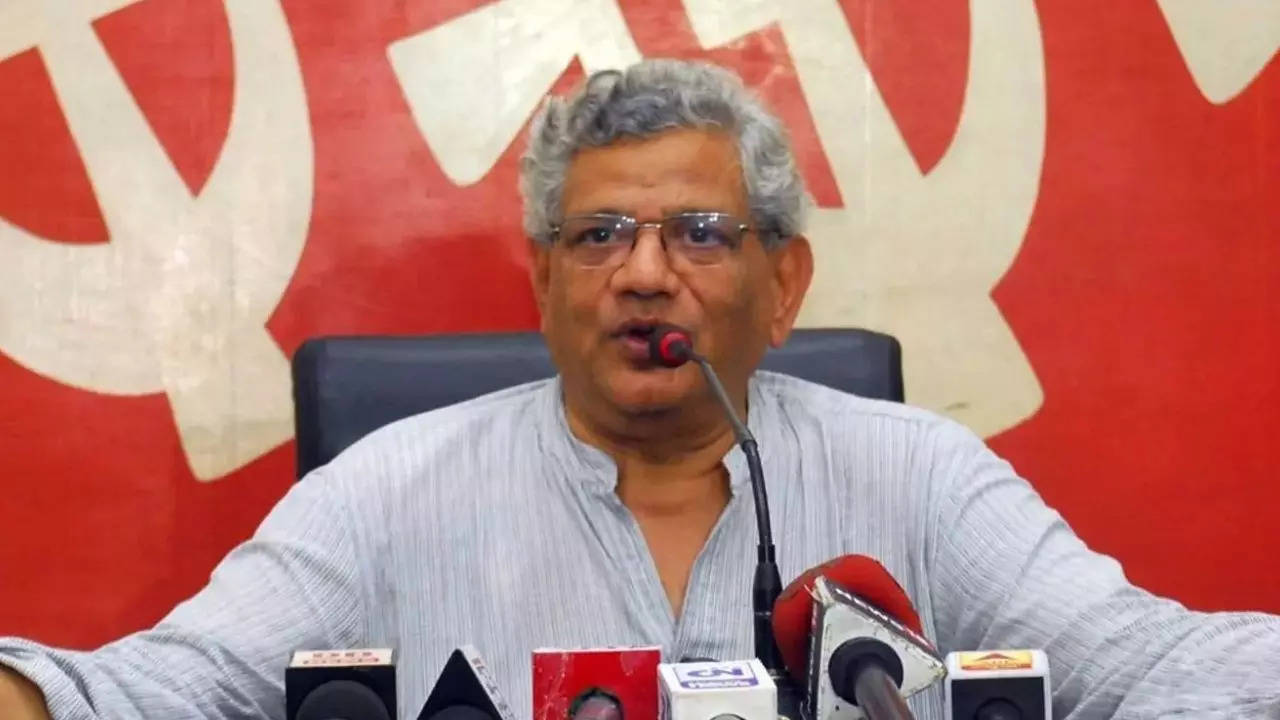
Sitaram Yechury, the veteran leader of the Communist Party of India (Marxist), passed away on Thursday at the age of 72 after battling a prolonged illness. The senior politician had been admitted to the All India Institute of Medical Sciences (AIIMS) in New Delhi on August 19 due to a severe chest infection like pneumonia. The news of Yechury’s death was confirmed by the CPI(M) and hospital sources, with the PTI reporting, “Veteran CPI(M) leader Sitaram Yechury dies at 72 after prolonged illness.” Reports indicate that Yechury's condition had been deteriorating for several days prior to his passing.
On Wednesday, sources confirmed that he was under oxygen support, and his condition was being closely monitored by a team of doctors from multiple disciplines. At that time, his condition was described as "critical but stable." Despite the medical interventions, Yechury’s health did not improve, and he passed away.
Signs Of Respiratory Illness To Watch Out For
Pneumonia, acute respiratory infections, and other lung-related conditions can become critical if not treated in time, especially for elderly individuals or those with pre-existing health issues. It is essential to be aware of the warning signs of respiratory illness to seek timely medical intervention. Here are some common signs to watch out for:
Persistent Cough
A cough that lasts for more than two weeks, especially if it produces mucus or blood, could indicate an underlying respiratory infection such as pneumonia, bronchitis, or tuberculosis. A persistent cough should never be ignored and warrants medical attention.
Shortness of Breath
Difficulty breathing or shortness of breath, especially during normal activities, can signal lung or heart issues. Conditions such as chronic obstructive pulmonary disease (COPD), asthma, or respiratory infections can cause shortness of breath. If breathing becomes laboured, immediate medical evaluation is necessary.
Chest Pain
Sharp or stabbing chest pain that worsens with deep breaths or coughing could be a sign of a lung infection, pleuritis, or even pneumonia. Chest pain should not be overlooked, especially when accompanied by other respiratory symptoms.
Wheezing
Wheezing, a high-pitched sound made while breathing, usually indicates a blockage in the airway. It is commonly associated with asthma, bronchitis, or severe allergic reactions. If wheezing persists, medical help should be sought to prevent further complications.
Fever and Chills
A high fever, often accompanied by chills and sweating, may indicate an infection in the respiratory system. Pneumonia and other respiratory illnesses can cause fever, which is the body’s response to fighting off pathogens.
Fatigue
Unexplained fatigue, especially when it occurs alongside other respiratory symptoms, could be a sign of a severe infection. Respiratory conditions, particularly those affecting oxygen levels, can lead to extreme tiredness and lack of energy.
Cyanosis
Cyanosis, a condition where the skin, lips, or nails turn blue due to a lack of oxygen, is a serious sign of respiratory distress. It can occur in conditions like pneumonia, COPD, or severe asthma. Immediate medical attention is necessary if cyanosis is observed.
Rapid Breathing
An increased breathing rate (tachypnea) is often a sign of respiratory distress or infection. Rapid breathing can occur as the body struggles to get enough oxygen into the lungs. This is commonly seen in cases of pneumonia or acute respiratory infections.
Confusion or Dizziness
Confusion or dizziness may indicate that the body is not receiving enough oxygen due to a respiratory issue. This is particularly concerning in elderly individuals and may point to serious lung problems requiring urgent care.
Loss of Appetite or Weight Loss
Respiratory infections or chronic lung conditions can cause a loss of appetite and unintended weight loss. If these symptoms appear alongside other respiratory signs, a thorough medical examination is crucial.

